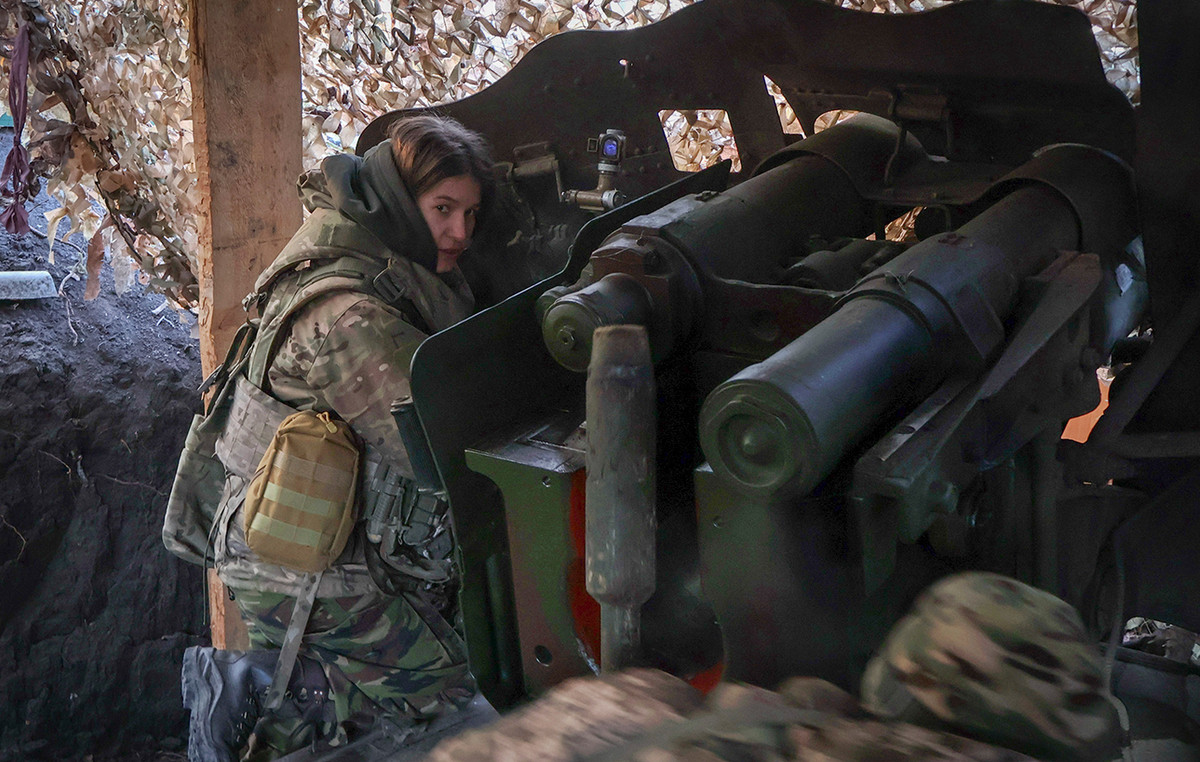Northern Gaza is facing a “total famine” spreading rapidly across the strip after nearly seven months of war, warned the World Food Program (WFP), a food aid arm of the United Nations.
Meanwhile, negotiators meet in Cairo in the hope of reaching an agreement for a ceasefire in the conflict ravaging the territory.
The observations highlighted the scale of the unfolding humanitarian catastrophe.
“Whenever there are conflicts like this, famine happens,” WFP Executive Director Cindy McCain told NBC’s “Meet the Press,” in a clip released before the interview aired Sunday.
“What I can explain is that there is famine – total famine – in the north, and it is moving towards the south.” While McCain's remarks did not constitute an official statement, she said they were based on what WFP staff saw while working in the region.
“It’s a horror,” she said of the situation in Gaza. “It’s so hard to look at and it’s so hard to hear.”
McCain said the WFP calls for a ceasefire and “unfettered access” to Gaza as delivering aid to the territory has been extremely difficult.
Israel has faced increasing pressure in recent weeks to allow aid into Gaza after its military strikes killed seven employees of the World Central Kitchen, a US-based charity.
Human rights agencies have long warned of a growing humanitarian crisis in Gaza under Israel's military assault, launched in response to the Oct. 7 attacks led by Hamas.
More than 34,600 Palestinians had been killed by Israeli strikes in Gaza as of May 1, according to the Gaza Ministry of Health.
Over the course of the war, more than 1.9 million Palestinians were forcibly displaced, according to the UN, with many of them sheltered in cramped tent camps in places that cannot provide sufficient access to sanitation or food.
The entire population of more than 2.2 million people is now at risk of famine and at least 30 children have already died from malnutrition and dehydration in Gaza, according to the Ministry of Health.
Concerns are also growing over a potential Israeli military operation in Rafah in southern Gaza, which has led to renewed calls for a ceasefire.
As negotiations continued in Cairo, Hamas political bureau leader Ismail Haniyeh issued a statement on Sunday saying that “the Hamas movement is still interested in reaching a comprehensive and interconnected agreement that puts an end to the aggression, guarantees the withdrawal [dos militares israelenses de Gaza] and get a serious prisoner exchange deal.”
Haniyeh said the delegation advocated “positive and flexible positions” aimed at preventing “aggression against our people, which is a fundamental and logical position that lays the foundation for a more stable future.”
A Hamas delegation arrived in Egypt on Saturday (4) to discuss a possible ceasefire and hostage agreement.
Israeli Prime Minister Benjamin Netanyahu issued a video statement accusing Hamas of making unacceptable demands in the negotiations.
He said Israel “has demonstrated a willingness to go a long way,” but “Hamas has remained entrenched in its extreme positions, among them the demand to withdraw all our forces from the Strip, end the war and leave Hamas intact.”
“The State of Israel cannot accept this,” continued Netanyahu. “Israel will not agree to Hamas’ demands, which means surrender, and will continue to fight until all of its goals are achieved.”
Potential operation in Rafah
US officials currently assess that a limited number of tents are being built in southern Gaza for the purpose of temporarily housing civilians who would be evacuated from Rafah in the event of an incursion by the Israel Defense Forces, a senior administration official said Friday. -Friday (3).
However, the official stressed that the tents being built do not come close to the quantity that would be needed to house the more than 1 million people who would need to be served.
“[Não há] no sign that they are imminently able, willing or ready to enter Rafah,” the official said of Israeli forces. “They are certainly not prepared to care for, feed and support a million and a half people.”
The Israeli government has informed aid organizations in recent days about its plans to evacuate civilians from Rafah, according to a source familiar with the matter.
The government warned that an operation in Rafah was underway, but did not provide any kind of timetable and did not suggest it was imminent.
A final agreement between Israel and Hamas is expected to take a few more days to be negotiated in the Egyptian capital.
*With information from Kareem Khadder, Mostafa Salem, Eve Brennan, Ibrahim Dahman and Tim Lister of CNN International
Source: CNN Brasil
Bruce Belcher is a seasoned author with over 5 years of experience in world news. He writes for online news websites and provides in-depth analysis on the world stock market. Bruce is known for his insightful perspectives and commitment to keeping the public informed.







